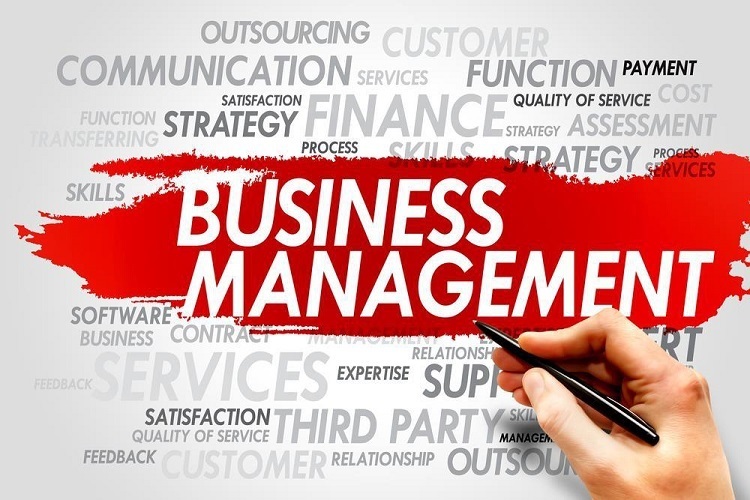
IMPORTANT BUSINESS SKILLS EVERY PROFESSIONAL NEEDS
Understanding essential business concepts and tools can benefit all professionals.

For example, it’s critical for business owners to ensure all members of their organizations are equipped with skills like critical thinking, time management, and effective communication to ensure daily operations run smoothly and reach business goals.
Here’s an overview of why it’s important to improve your business skills and ten you should prioritize to advance your career.
WHY IS IT IMPORTANT TO IMPROVE YOUR BUSINESS SKILLS?
A foundation in business can not only lead to greater confidence in the workplace but open the door to a myriad of career opportunities. For those who’ve broadened their knowledge by taking a Harvard Business School Online course, the experience has led to such outcomes as:
- More responsibility at work
- A promotion or title change
- Greater attention from recruiters
- The ability to transition into a new field
If you want to achieve similar objectives in your career, here are ten business skills you should develop.

BUSINESS SKILLS EVERY PROFESSIONAL NEEDS
1. An Understanding of Economics
A baseline knowledge of economics can be valuable in any industry. In addition to an in-depth understanding of pricing strategies and market demand, studying economics can provide a toolkit for making key decisions at your company.
For Nicholas Grecco, a former CORe participant who works as an educator and healthcare administrator, the lessons learned in Economics for Managers were instrumental in helping his organization invest in solar energy.
“I knew investment in solar was a good opportunity, but the concept of willingness to sell (WTS) helped me to understand and explain why,” Grecco says. “Because of extra incentives from the city program and group purchasing power, the electrical contractors were willing to sell solar energy systems for a much lower price than usual, thereby increasing our consumer surplus. By explaining WTS, I was able to convince the owner to move forward with this project.”
Related: A Beginner’s Guide to Value-Based Strategy
2. Data Analysis Skills
Research shows that an increasing share of firms—including Microsoft, Uber, and Blue Apron—use analytics to generate growth and improve their services and operations.
According to LinkedIn, analytical reasoning is one of the most sought-after hard skills in today’s job market. Knowing how to summarize datasets, recognize trends, and test hypotheses can provide an analytical framework for approaching complex business problems and help you make informed decisions that benefit your firm.
“Using data analytics is a very effective way to have influence in an organization,” says HBS Professor Jan Hammond, who teaches the online course Business Analytics. “If you’re able to go into a meeting, and other people have opinions, but you have data to support your arguments and recommendations, you’re going to be influential.”
3. Financial Accounting Skills
Accounting know-how can be beneficial to your career, even if you’re not in a numbers-focused role. While it can seem like an intimidating subject, it’s far more approachable than you might think.
Concepts such as cash flow and profitability are useful for understanding your organization’s performance and potential, while knowing how to read and interpret a balance sheet is critical for communicating financial results.
Pankaj Prashant, an engineer who took CORe, says the principles he learned in Financial Accounting helped him build on his technical background and advance his career.
“I’ve been keeping track of my company’s annual reports, and the accounting that I learned helps me in understanding where the business may head in the future,” Prashant says. “I’ve also been tracking a few other companies for investment purposes, and I’ve realized I can make more informed decisions with my improved knowledge of company financials.”
Related: 7 Business Skills Every Engineer Needs
4. Negotiation Skills
Whether you’re just beginning your professional journey or operating at a senior level, it pays to be an effective negotiator. In a report by the World Economic Forum, negotiation was identified as one of the top 10 people skills needed to thrive in the future workforce.
Honing your deal-making skills can not only help secure value for your organization at the bargaining table but for yourself when advocating for a higher starting salary or raise.
There’s no one-size-fits-all approach to crafting a successful negotiation strategy. The key, according to HBS Professor Mike Wheeler, who teaches Negotiation Mastery, is to be open to improvisation and plan to think on your feet.
“However you happen to see yourself as a negotiator, most people you deal with likely have a different style, at least to some degree,” Wheeler says. “To succeed, therefore, you must be agile. That means flexing yourself so that you deploy different skills depending on the situation and whom you’re dealing with.”
Related: What’s Your Negotiation Style?
5. Business Management Skills
Strong managerial skills are intrinsically linked to organizational performance. A study by Gallup found that managers account for 70 percent of variance in employee engagement, underscoring the need for companies to develop leaders who drive team productivity and morale.
For seasoned and aspiring managers alike, it’s valuable to know how to lead meetings and communicate organizational change. Equally important is being aware of the common missteps team leaders make.
In the case of Monica Higgins, a public relations account director, taking the online course Management Essentials was a way to augment her managerial knowledge and develop a fresh outlook in her role.
“I’m more aware of looking at things through a larger lens, from a variety of perspectives,” Higgins says. “I’ve always been a fan of asking thoughtful, learning questions—as opposed to making declarations—and I’m now a big fan of playing devil’s advocate.”
Related: 7 Effective Ways to Become a Better Manager
6. Leadership Skills
Whether you hold a management position or not, leadership skills are vital to workplace success. While some people think of leadership and management as one and the same, there are differences between the two. Whereas management is centered on implementing processes, leadership is more focused on the people and vision that guide change.
In addition to honing your management skills, building your leadership skills can be beneficial in any profession. From learning to keep calm during times of pressure to developing your own leadership style, these skills can help you understand how to bring your vision to life and position your team for success.
7. Effective Communication
In any business setting, professionals rely on communication to coordinate efforts and accomplish organizational goals. Ineffective communication—or a lack of communication altogether—can prove catastrophic.
Along with developing your skills, a large contributor to success is understanding and adapting to others’ communication styles. Other key communication skills include active listening, empathy, and reading body language.
8. Emotional Intelligence
Emotional intelligence is another essential business skill, and research shows it’s a leading indicator of performance in the workplace. According to a study by TalentSmart, 90 percent of top performers have a high degree of emotional intelligence.
Emotional intelligence is commonly broken down into four concepts: self-awareness, self-management, social awareness, and relationship management. In short, this skill refers to your ability to understand your emotions and recognize and influence those of others.
No matter your industry or position, having awareness of yourself and those around you can enable you to have more control over your interactions and effectively accomplish goals.
9. Decision-Making Skills
All professionals need strong decision-making skills to navigate complex workplace challenges. For those specifically working in business or management, the need for such skills is even greater.
Determining how to allocate resources, which employees comprise a team, and how to implement a new organizational initiative are all decisions that need careful consideration. With the growing number of tools and resources that can be used to capture data, managers can fuel their processes with valuable insights to make data-driven decisions and generate better outcomes.
Related: 8 Steps in the Decision-Making Process
10. Networking
Networking is another critical business skill that all professionals should exercise.
Whether you want ideas or advice on a specific challenge or are preparing for a career change, the people who make up your professional network can be valuable resources.
To make the most of your network, be open to opportunities to step out of your comfort zone and build new relationships. Once you have your network in place, it’s important to maintain relationships you’ve formed and find new ways to expand your web of contacts.
Related: How Leaders Develop and Use Their Network

HOW TO IMPROVE YOUR BUSINESS KNOWLEDGE
If you aim to advance your career, the value of business skills can’t be overstated. In addition to hard skills (such as financial accounting and an understanding of economics), you need soft skills (such as emotional intelligence and leadership) as your organization grows.
No matter your industry, knowledge of essential business concepts can help you better understand your organization’s performance and acquire the tools needed to spearhead initiatives and drive strategic decision-making.
